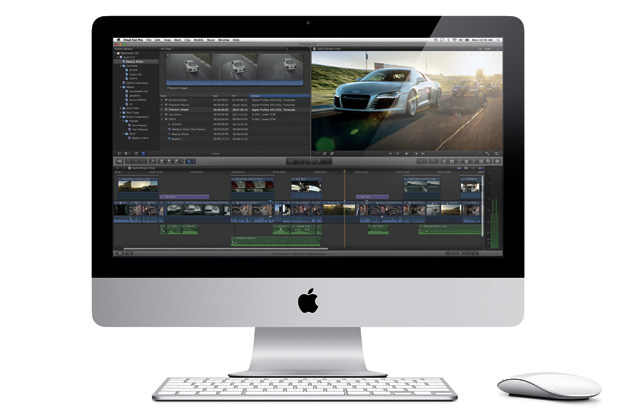
Apple has discontinued the "prosumer" Final Cut Express and its high-end Final Cut Server products in the process of its release of Final Cut Pro X earlier this week. And, to the surprise of no one, the complete restructuring of Apple's direction for its video editing software aimed at professionals has been met with loud criticism. But Apple plans to quickly improve Final Cut Pro X over time, addressing many of the complaints with incremental feature updates.
Many users have expressed their frustration with a litany of missing features in Final Cut Pro X. To begin with, there's no support for output to tape, and input from tape is very limited. There's no support for EDL or XML export, commonly used to move projects from the editing stage to the finishing stage using other software. There's no OMF output for mixing audio using Pro Tools. And because FCPX uses a completely re-architected underlying media handling and editing paradigm, it can't import projects from previous versions of Final Cut Pro.
Users who rely on those features simply won't be able to take advantage of FCPX's speed improvements and other changes, at least for now. "I think the broad market will adopt faster than the high-end market," editor and Final Cut Pro trainer Larry Jordan told Ars. "Some of the high-end market will love the program. Others—more tied to tape or multicam, for example—will not."
But that doesn't mean Apple is abandoning users that need such functionality. "Apple has been very specific, that this is not the final state of FCPX," Gary Adcock, owner of Chicago-based Studio 37, wrote in an article for Creative Cow. "Features are expected to be added quickly, via the App Store, with some of them waiting to show up natively in OS X Lion and with support for Thunderbolt."
Another editor with early access to FCPX during the beta process, Philip Hodgetts, suggests that Apple architected the new software for speed first, and that additional compatibility will be forthcoming as Apple works out how to build it with FCPX's new foundation. For instance, "multicam [support] will come in a future release, when Apple decides how best to implement it within the new application and architecture," he wrote in a recent blog post.
The same is true for support of various video formats and codecs. While FCPX supports some common tapeless formats, such as H.264 from DSLRs and AVCHD, it doesn't yet support XDCAM or Red formats natively. "Each codec/container's support has to be [re]written new in AV Foundation," Hodgetts wrote. AV Foundation is the media architecture introduced with QuickTime X, and "the reason for [FCPX's] phenomenal performance," he said.
Architectural changes are also at least partly responsible for the disappearance of Final Cut Server following the introduction of FCPX. The software allowed production facilities to store media assets on a central server, allowing multiple editors running Final Cut Pro to access and use these assets simultaneously. FCPX uses a single media store backed by Core Data instead of the per-project media stores used in previous versions of FCP, which makes it incompatible with Final Cut Server's design.
However, FCPX does allow media to live on any drive that your machine can access. "I do not currently have word on shared storage," Hodgetts said, "but I would expect shared storage on a SAN to work as long as Final Cut Pro X could connect to the shared media." Support for Apple's Xsan filesystem will be included in Lion, so Apple may be counting on this compatibility to pick up where Final Cut Server left off.
What's really rubbing users the wrong way, however, is Apple's decision to discontinue its mid-range Final Cut Express video editing software. When Final Cut Pro cost $999 or more, Final Cut Express offered users looking for something more powerful and flexible than iMovie with an affordable option. With Apple aggressively pricing the new FCPX at $300, it appears Apple saw little reason to maintain an additional $200 product aimed at a small number of "in-between" users.
Apple's Final Cut Pro saw fairly rapid adoption in the professional video and film editing industries. With the software so entrenched, it's no surprise that the complete rewrite for FCPX is raising some alarms. However, those who have had early access to the software and have spoken to Apple about its direction seem convinced the company is on the right track.
reader comments
112